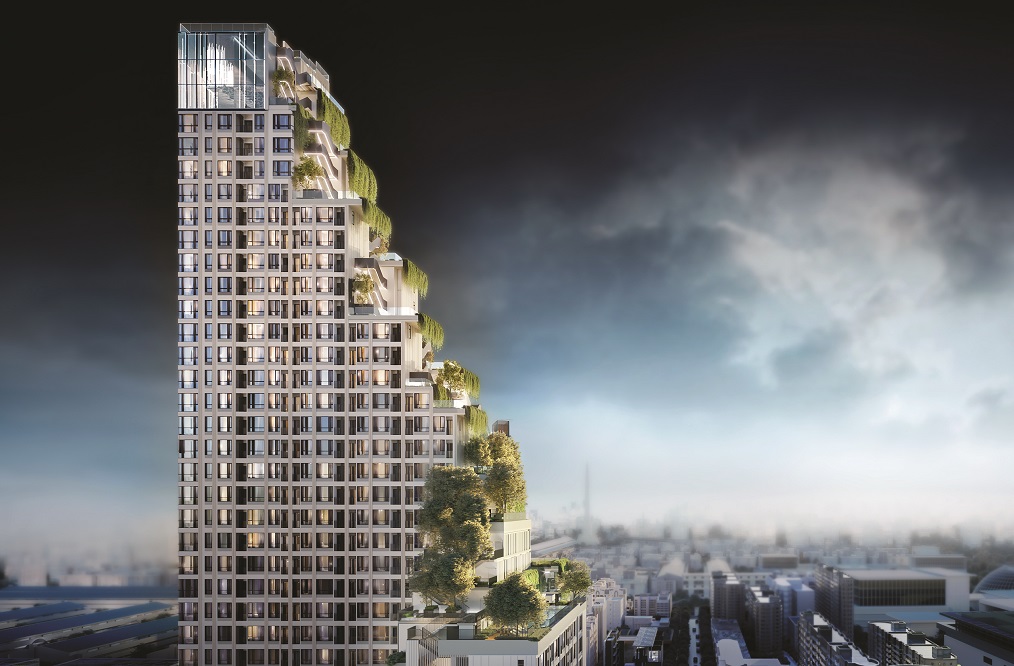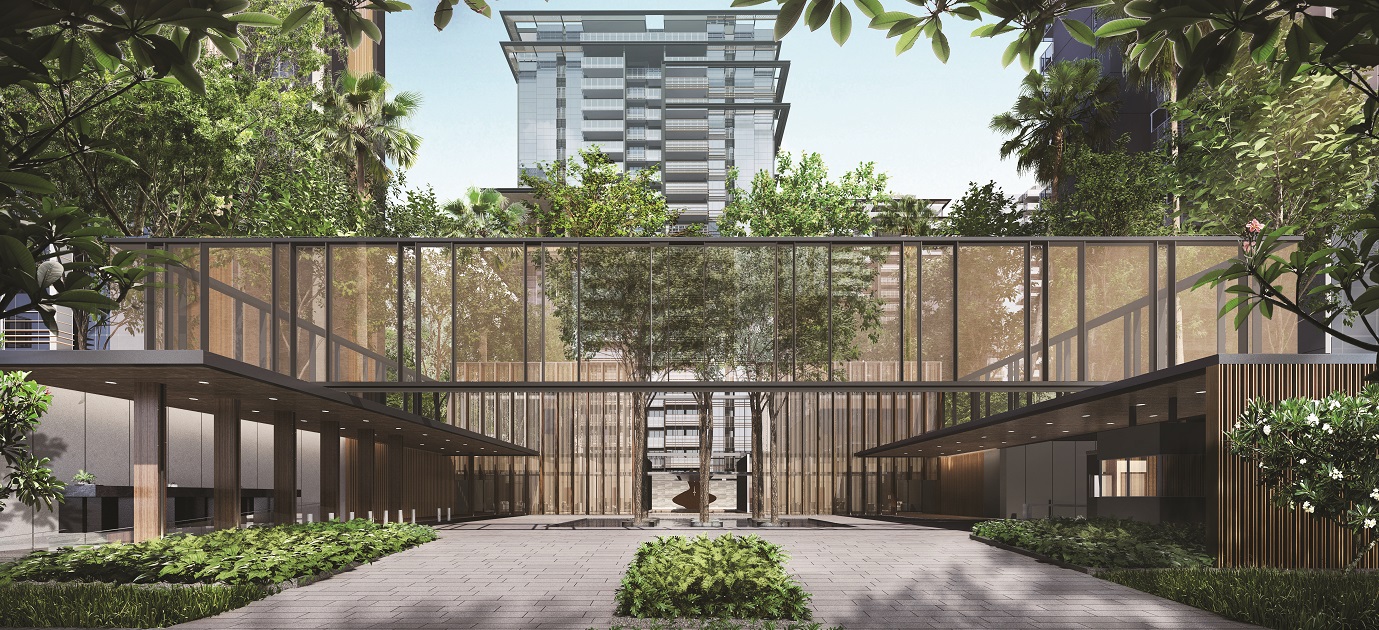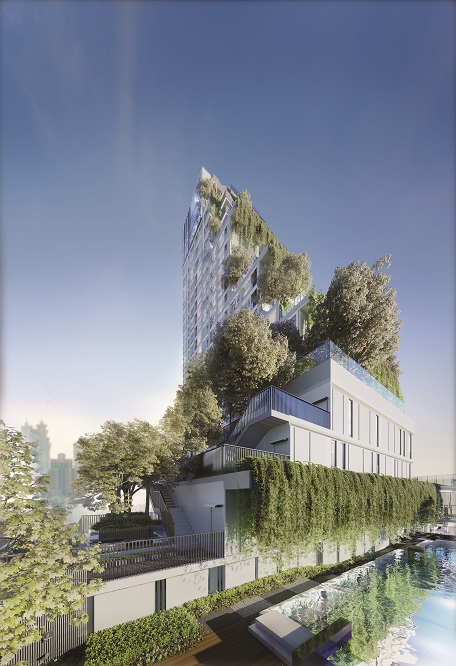Hyper-connected homes elevate art of smart in Thailand and Singapore
For Southeast Asia’s early-adopting residential markets, smart is the new luxury

Once confined to the realm of science fiction, disruptive technology advances like artificial intelligence (AI) have not only arrived but come closer to home in Southeast Asia. From Bangkok to Singapore, smart homes—dwellings equipped with lighting, heating and electronic devices that can be remotely controlled by a phone or computer—are gaining traction.
In Asia, management consultancy AT Kearney predicts the market for smart homes will hit nearly USD120 billion by 2030 or more than 25 percent of the global smart home market. This year alone, Asia-Pacific will account for 36.9 percent of global spending on the internet of things (IoT), the bedrock on which smart homes stand, with countries in the region in different paces of adoption.
While forward-thinking ‘Smart Nation’ Singapore remains the hotbed for IoT innovation, Thailand is catching up, with its telecommunications infrastructure, especially in narrow-band IoT (NB-IoT) systems and long-range wide-area networks (LoRaWAN), maturing in recent years. In both markets, “smart home” is as much a buzzword as it is a badge of honour.
Facial recognition systems installed from the lift lobby and up ensure a safe journey for residents from curb to home. Home owners can use the tech to screen guests downstairs, while an all-seeing doorbell helps vet unfamiliar faces from their phones when away from home
Set to complete by 2023 on the former site of the Shunfu Ville estate acquired by Qingjian Realty Marymount) Pte Ltd for SGD638 million (USD472,000) in 2016, Jadescape won Best Smart Building Development at the PropertyGuru Asia Property Awards (Singapore) shortly after its launch last September.
A seven-tower private condominium project designed by Japanese architect Paul Noritaka Tange, Jadescape showcases a brand of smart that hinges primarily on hyper-security. Facial recognition systems installed from the lift lobby and up ensure a safe journey for residents from curb to home. Homeowners can use the tech to screen guests downstairs, while an all-seeing doorbell helps vet unfamiliar faces from their phones when away from home. An extra veneer of security is given parents, as Jadescape units come equipped with a PTZ (pan-tilt-zoom) camera that features two-way audio, enabling them to monitor and talk to their kids while away from home.
Jadescape comes with an exclusive app called hiLife, which turns a homeowner’s phone into a virtual doorman that can lock and unlock doors remotely, notify security personnel of incoming guests, and generate unique QR codes to grant friends and family access to the main gate and lift lobby. Homeowners can also book any of the 100 common facilities or flag areas for repairs through hiLife.

Lights, aircon, and various devices are responsive to voice commands. Kitchens feature integrated top-loading dishwashers and water purifiers that notify residents when dishwashing is done and when the purifier cartridges need to be changed. Through ultrasonic technology, dishwashers can double as fruit and vegetable sanitisers, while smart purifiers dispense clear alkaline drinking water for the family. Air-conditioners are smart, saving residents up to 35 percent in electricity bills by capturing excess heat from their condensers and using it to warm the shower water tank. There is also the option to install a SMART Sleep Sensor, which can monitor and analyse their sleep patterns.
Such value proposition, on top of its choice location—Jadescape stands between the MacRitchie Reservoir and the Bishan-Ang Mo Kio parks—is drawing Singaporeans to invest. Around 60 percent of Jadescape’s more than 1,200 units on offer were snapped up over the launch weekend. “Jadescape has enjoyed steady sales and a good mix of buyer profiles due to the mature estate and good connectivity,” says Yen Chong, deputy general manager of Qingjian Realty (Marymount) Pte Ltd.
Similar developments are springing up in Bangkok, with Thai developer Origin Property Public Company Limited given a Special Recognition for Smart Home Development at the 2018 PropertyGuru Thailand Property Awards for its luxury condo project Park Origin Phayathai.

Origin hired Singapore-based architectural firm Ong&Ong Pte Ltd, alongside interior stylists DWP, to bring the company’s vision to life: to make Park Origin Phayathai a complete, self-contained, intelligent ecosystem. “We believe that smart features go beyond technology. We created a concept called ‘A Perfect Living Platform,’ expressed through three essential living components—nature, community, and technology,” says Dilogrerk Soommart, product development manager at Origin.
The platform enables home automation via personal mobile devices and promises to facilitate cashless payments in the future. Judges at the Thailand Property Awards singled out Park Origin Phayathai’s smart mirrors, providing residents access to news, entertainment, and essential day-to-day info.
More than a smart home development, Park Origin Phayathai is a transit-oriented project. Rising 35 storeys, Park Origin Phayathai stands on a 3,720-square-metrefs plot close to the Phayathai station of the BTS Skytrain system, an interchange point for the train link leading to the airport. “The location is a rare find in inner Bangkok,” says Dilogrerk.
More: The birthplace of the Pegu Club cocktail opens its doors once more
Like Jadescape, sales take-up for Park Origin Phayathai has been fast. Set to be completed in 2021, more than 80 percent of the 550 units at Park Origin Phayathai have been sold. The fact that the development is quickly selling at THB265,000 (USD8,500) per sqm for the average unit, is indicative that smart seems to be the new luxury in Thailand.
However, smart homes hitting the mainstream may still be far off. Dilogrerk points out access to high-tech homes remain mostly confined to the Thai upper crust, with economic factors in the next year possibly “reducing purchasing power in the Bangkok real estate market.” But the fact that the factors showing intelligent homes are set for take-off already exist—seamless connectivity, device interoperability, and declining technology costs, among them—makes building and investing in smart homes a wise move indeed.
This article originally appeared in Issue No. 153 of PropertyGuru Property Report Magazine
Recommended
Why everyone is moving to Selangor and Johor: Malaysia’s real estate comeback
Malaysia’s upturn in fortunes is especially prevalent in secondary destinations such as Selangor and Johor
Penang’s silicon boom: How the US-China tech war is supercharging local real estate
Penang’s booming semiconductor industry has created ripples within the local real estate sector
New leader, new opportunities: How Hun Manet is shaking up Cambodia’s real estate game
Hun Manet is overseeing decent economic growth and widening access to the country’s real estate market for foreigners
Singapore embraces inclusive housing reforms amid resilient demand
The Lion City’s regulatory strength continues to exert appeal for international investors








